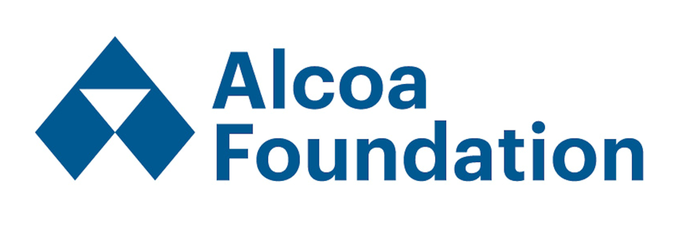GREEN ALLIES INITIATIVE
The connection between sustainable business strategies and developing green citizens/consumers is constantly growing and adapting with technological advances, cultural norms, and ecological changes. The Alcoa Foundation, Centerpoint Energy, and Wesselman Woods have joined to create the Green Allies Initiative.
The Green Allies Initiative has the potential to influence this green connection in Evansville with two important actors – Evansville citizens and local businesses. Our Green Allies Initiative teaches participants pragmatic ways of becoming a sustainable and eco-centric household or business. We encourage participants to be informed and responsible citizens, consumers, and investors who promote sustainable operations at their households and businesses.
This 7-week course introduces environmental sustainability and touches on the science, concepts, and strategies used to green businesses, organizations, and individuals’ lifestyles. This course is completely informed by the most recent Evansville Climate Action Plan, a plan developed for and by the citizens of Evansville.
By the end of this course, participants will be able to think critically about the environmental, societal, and economic impacts of human activities and systems. Participants will learn various strategies to decrease their environmental footprint at their homes and business and to market those activities to meet the demands of their local consumer network.
We understand that businesses cannot risk their financial viability, no matter how strong their environmental commitment is. We understand that making eco-centric transformations will take time. This course is the starting point to support you in making these necessary changes.
DATES
This workshop is a 7-week evening course. Each course will have an in-person component held on Saturdays at the Wesselman Woods Nature Center from 6 to 9 PM. Dates, topics, and speakers are listed below. Classes are limited to 30 seats.
EVANSVILLE CLIMATE ACTION PLAN VISION
By 2050, Evansville will be a regional leader in addressing climate change and a zero-waste community, powered by renewable energy, where all people have access to efficient transportation alternatives, public green spaces, clean air and water, and locally sourced fresh food.
Presenters
Session 1: Why Evansville? Our Fight to Become More Sustainable
01/08/2022 with Carolyn Townsend
Vanderburgh County offers many environmental and ecological features not found in the rest of Indiana. Unfortunately, human development has compromised the Ohio River and the surrounding ecosystems. This session is an initial discussion on how this course can help make Evansville sustainable for everyone.
Carolyn is pursuing her Master of Public Affairs and Master of Science in Environmental Science (MPA-MSES) at the O’Neill School of Public and Environmental Affairs at Indiana University, graduating in December 2021. Passionate about addressing systemic inequity, she is currently doing a specialized concentration focused on the intersectionality of climate change adaptation and mitigation and racial inequity at O’Neill. Last year, she led the development of the City of Evansville, Indiana Climate Action Plan (CAP), for which the city received the 2020 Green Community of the Year Award from Accelerate Indiana Municipalities (AIM). Carolyn completed her work developing the City of Carmel, Indiana CAP with a local consulting firm. Most recently, Carolyn was a 2021 Environmental Defense Fund (EDF) Climate Corps Fellow, at the New York City Mayor’s Office of Climate and Sustainability. In this role, she developed an accountability and evaluation mapping tool to measure racial equity, social justice, and environmental benefit of their policies and programs citywide.
Session 2: Sustainable Transportation
01/15/2022 with Tim Maloney
Transportation is an integral component for how communities transport, move, and ship. The future of transportation is reliant on the efficiency of movement while reducing emissions. In this session, we will be reviewing how upgrading transportation options, redeveloping city plans, and reducing the carbon footprint of transportation will require local, state, and national policies.
Tim Maloney is the Senior Policy Director at Hoosier Environmental Council. Tim leads the Hoosier Environmental Council’s programs on transportation, land use, natural resource and wildlife conservation, and co-leads the Council’s policy initiative on coal combustion waste management. He serves as one of HEC’s lobbyists at the Indiana legislature. Past organizational affiliations include serving as chair of the Hoosier Chapter of the Sierra Club as well as a field organizer for the Sierra Club and National Clean Air Coalition. He was a founding member of the HEC Board of Directors. He has a bachelor’s degree from Indiana University, and lives near Nashville, Indiana.
Session 3: Accelerating to Zero in the Built Environment
01/22/2022 with Bill Brown
This session focuses on sustainable buildings and infrastructure, showing the way to zero operational and embodied carbon. How might the American Institute of Architects Framework for Design Excellence inform the design of a resilient 21st century built environment? What are the secrets of affordable zero energy, zero carbon projects and how might existing buildings be a key part of the solution for a thriving future?
In 2019, Bill Brown started Griffy Creek Studio LLC, in Bloomington, Indiana, to zero in on energy-positive, resilient buildings. Before that, he was the first Director of Sustainability at Indiana University, where he guided the university from a D+ sustainability rating in 2009 to an Association for the Advancement of Sustainability in Higher Education (AASHE) STARS Gold rating in 2018 and 20 LEED-certified buildings. Bill was elected to the national board of AASHE in 2012.
Bill was a member of the AIA National Committee on the Environment and a participant in The Greening of the White House in 1992-1994. His architectural portfolio includes dozens of public schools and libraries, including the first certified energy-positive public library in America, built in Chrisney, Indiana, in 2009. He is the recipient of two AIA National Presidential Citations and is an Indiana state design honor award winner. Bill also teaches Energy and Environmental Design at the Indiana University J. Irwin Miller Architecture Program, in Columbus, Indiana.
Session 4: Productive Green Space and Urban Forests
01/29/2022 with Dr. Sarah Mincey
Whatever size area your household or business has, creating a productive green space is feasible. This session will lead us to make informed decisions on contributing to a sustainable urban forest and incorporating other forms of urban green infrastructure into the community to support the local ecosystem.
Dr. Sarah Mincey is a social-ecological systems scientist who studies community-based natural resource management and environmental governance, with particular emphasis on urban forest management. She is a clinical associate professor in the O'Neill School of Public and Environmental Affairs at Indiana University (IU). Administratively, she serves as the director of IU’s Integrated Program in the Environment (IPE) and the managing director of the university’s Environmental Resilience Institute (ERI). She maintains much of her research activity through her affiliation with the Vincent and Elinor Ostrom Workshop in Political Theory and Policy Analysis, the Bloomington Urban Forestry Research Group and ERI. She serves on the state’s urban forestry advisory council and as a founding board member of CanopyBloomington, an urban forestry-focused nonprofit in Bloomington, Indiana.
Session 5: Environmental Justice
02/05/2022 with James Mosley
This session surveys how scientists, sustainability policy experts, lawyers, and grassroots activists are working in environmental justice realm. We will learn how to analyze factors that impact environmental resiliency and socio-economic and equity issues facing our communities in southern Indiana.
James Mosley received his BS degree in Public Administration from the O'Neill School of Public and Environmental Affairs at Indiana University (Bloomington, IN).
He served as a Legislative Assistant to a U.S. Congressman representing the 8th District of Indiana. A city planner by trade, James served as a Community Planner with the Evansville Department of Metropolitan Development and the District of Columbia Office of Planning. He worked at the DC Environmental Regulations Administration and consulted with the Interstate Commission on the Potomac River Basin promoting sustainable development and watershed restoration projects.
James is owner of EKI, an environmental, public involvement and planning firm. EKI is a U.S. EPA Lead-Safe Certified firm that focus on providing strategic solutions for sustainable communities. EKI aided in the development of the Green Infrastructure Guidance Manual for Evansville Water and Sewer Utility
James introduced the vision of Environmental Justice (EJ) to Evansville when he partnered with Carver Community Organization and established the Environmental Justice Resource Center (EJRC) with grants awarded by the U.S. EPA Office of EJ, Region 5. As manager of the EJRC James promotes education and awareness on lead hazards, toxic substances and associated risk reduction activities to low income and Black, Indigenous, People of Color (BIPOC).
James advocated for brown fields in hard-to-develop communities while promoting alternative energy and green-collared jobs. James supports the development of “a national urban policy” and infrastructure projects that serve to provide equity and resiliency for residents in marginalized communities.
Session 6: Sustainability Action Plan Clinic
02/19/2022 with Stephanie Hayes Richards
This final session culminates in creating your own sustainability action plan for your household and/or business with the help of a professional sustainability consultant.
Ms. Stephanie Hayes Richards is the founder and managing principal of Gnarly Tree Sustainability Institute (GTSI), a woman-owned small business and B-corporation located in Bloomington, Indiana dedicated to training the next generation of sustainability leaders through hands-on mentoring of university students through consulting engagements.
Ms. Richards has significant experience in climate change policy design, comparative environmental policy, stakeholder and public engagement, sustainability planning and management, supply chain risk management, qualitative research methods, and the design of voluntary environmental agreements. Her recent work has included research and data analysis for Community Voices for Health in Monroe County, stakeholder engagement for a World Bank project in South Africa to design a framework for consideration of domestic carbon offset standards, development of 17 detailed carbon tax case studies for the World Bank Carbon Tax Guide, industry outreach and supply chain risk assessment for the U.S. Federal Government, City of Carmel climate action plan, City of Bloomington sustainability action plan, and research on the design of voluntary environmental agreements.
Ms. Richards holds an MPA in Environmental Policy Analysis and Nonprofit Management from the School of Public and Environmental Affairs at Indiana University (2000) and an MBA in Marketing from the Kelley School of Business at Indiana University (2007). She also holds a BA in Government from Campbell University in Buies Creek, North Carolina. In addition, she is constantly growing her qualifications through certifications such as Global Reporting Initiative (GRI) Sustainability Reporting, Building a Thriving and Compassionate Community Bloomington: Introduction to Systemic Racism, Cybersecurity Maturity Model Certification, Collaborative Institutional Training Initiative Social and Behavioral Responsible Conduct of Research, New Hampshire Listens facilitator training, Purdue Extension Facilitative Leadership; and the Bloomington Chamber of Commerce Diversity, Inclusion, and Equity training series
FOR MORE INFORMATION
For more information about how your company can get involved, please contact us at info@wesselmanwoods.org.
Photo Alex Morgan Photography
Green Allies Initiative, funded in part by Alcoa Foundation and Centerpoint Energy, and developed by the team at Wesselman Woods © 2021












